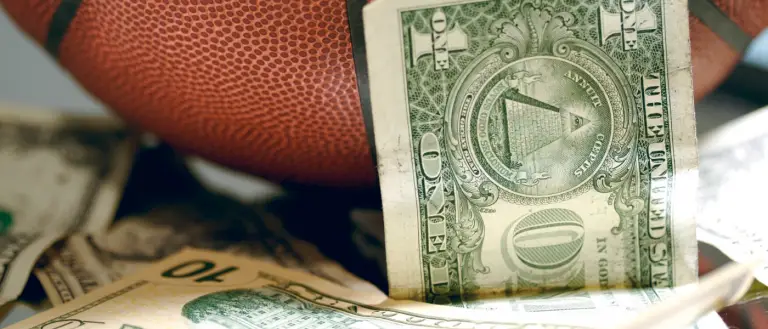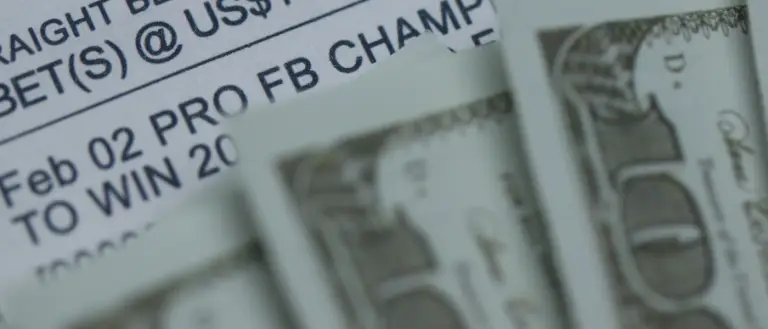How Free Money From Sportsbooks Comes At A Cost

Barring a Jean Van de Velde-type implosion, John Rahm was on his way to posting his sixth career PGA Tour win this past weekend. Rahm held a six-stroke lead entering the final round of The Memorial Tournament but was forced to withdraw after testing positive for COVID-19.
Rahm bettors went from excitement to misery and back to excitement, as most US sportsbooks decided to grade Rahm bets as winners.
Setting aside the “should Rahm have been permitted to play the final round” debate, these decisions are becoming commonplace in the legal US sports betting market, and the implications go well beyond the usual sharp money vs. recreational bettor discourse that is taking place on Sports Betting Twitter.
There is a responsible gambling component at play, and while I’ve seen several columns and Twitter takes discussing the RG aspects of the incident, I haven’t seen anyone hit the nail on the head. This isn’t about making recreational bettors happy or creating expectations that all bad beats will get refunded. The real problem this creates is at the margins.
Site Credits Aren’t Really a Win
First, these instances are usually paid in site credit, not as a bona fide winning bet.
I have no issue with the latter (to its credit, this is how at least one sportsbook paid Rahm bettors), but the former is inviting a hornet’s nest of problems. The reason being, it forces bettors to place more wagers, and with most of those bettors having Rahm in the neighborhood of 10-1 odds, these subsequent bets are likely to be bigger or more numerous than what the customer typically places.
For most people, that’s not an issue, but for people in some stage of a gambling disorder or in the early stages of their betting life, it’s the opposite of what they need.
For example, imagine a first-time bettor deposits $50 into their sports betting account and places a handful of $10 wagers on various events with odds around 10-1, including Rahm.
All these bets are likely to be losers on a typical weekend, and our new sports bettor will have a good think about betting in the future.
One or two of the bets come through on a blessed weekend, and the initial $50 deposit turns into $150 or $250. Our hero now has a choice to make, cash out their initial $50 and bet with house money next week? Leave the entire balance in the account for future bets? Cash it all out and consider yourself lucky?
But when paid in site credit, our new sports bettor didn’t win money, and their ability to choose disappears. They won the “gift” of having to place more bets whether they want to or not, with what they are likely to view as found money given the circumstances.
Or what about the seasoned bettor that is growing disillusioned with sports betting, and for whom the Rahm withdrawal would have been the last straw – the bad beat that caused them to quit betting? Maybe a legitimate Rahm win would change their mind, and they keep betting, or perhaps they still stop anyway. Who knows? But by issuing site credit, the sportsbook takes the choice away.
Conditioning
Second, grading losing bets as winning bets due to a force majeure changes the reward system of betting. That is a system that shouldn’t be tampered with, considering the addiction risks associated with gambling.
It skews the customer’s thinking of how often they will win money, possibly leading to increased betting activity, riskier betting behaviors, or both. That is particularly true with new bettors and will have an even more significant impact if the bets have long odds.
Think of it this way. Ten people sit down to play a winner-take-all poker tournament for the first time. The one that wins is highly likely to want to play again. And it will take many subsequent losses before they truly comprehend the variance at play.
That is an issue, but it becomes a far more severe problem when site credit enters the picture.
Imagine if the poker tournament also randomly paid another person as if they won, with the caveat that they would have to use that money to enter ten more tournaments. This person is not given a choice, and it provides the house with ten more opportunities to let the customer taste victory, which is a big reason people keep gambling. The “lucky” player isn’t necessarily returning because they enjoyed the experience, they’re returning because it’s required to claim their prize.
Upshot
Sportsbooks looking to retain customers are welcome to give away all the free money they want, but when a “winning bet” has strings attached, it’s not a win. It’s merely an invitation to gamble more, whether the person wants to or not.







